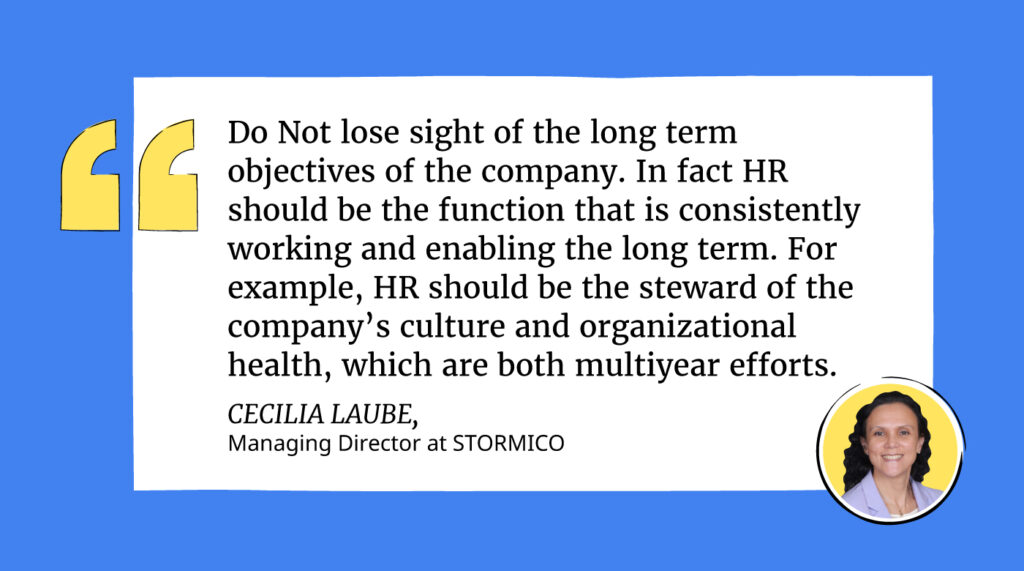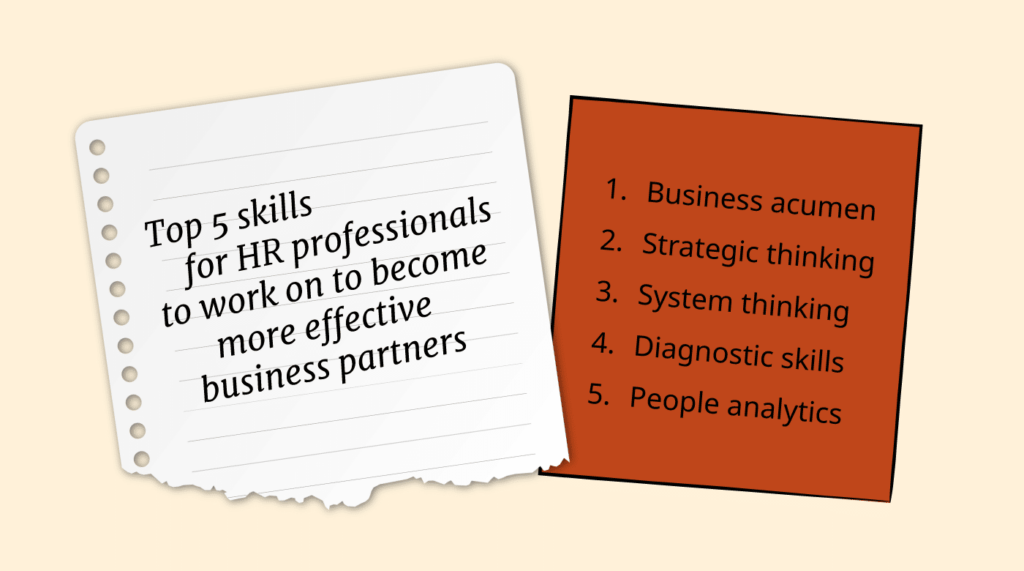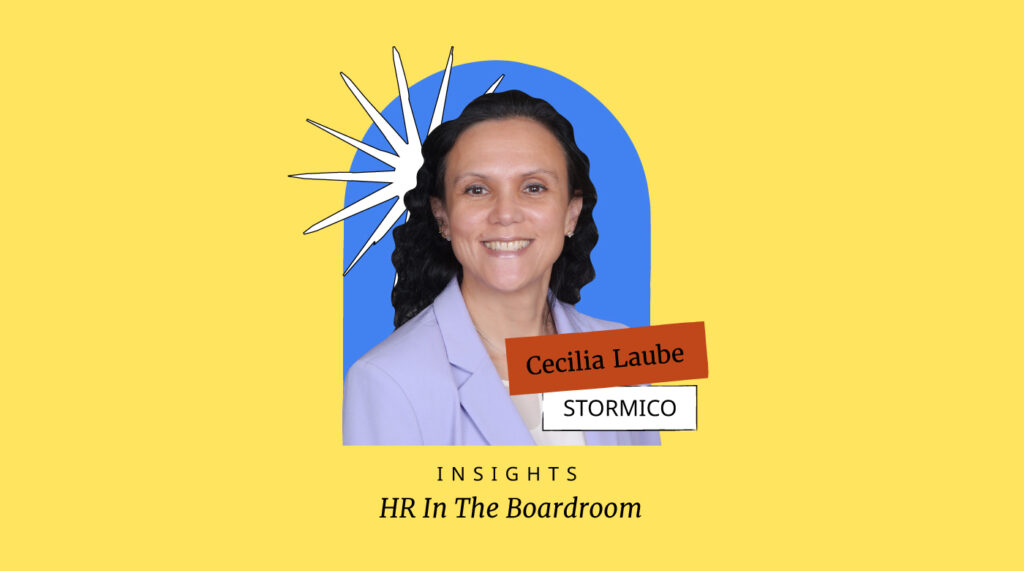Most leaders don’t see how to employ HR as a strategic pillar of the business and this leaves a lot of professionals feeling somewhat frustrated.
Hi Cecilia! Before we dive in, our readers would love to get to know you a bit better. Can you tell us a bit about your backstory and how you got started?
I believe that every one of my roles throughout my 20+ year career journey has contributed to where I am at today. With every opportunity I have learned more about myself, my passions and dislikes, areas to develop, and areas to share with others.
The last few years, throughout the pandemic, have made me understand the need for us leaders to become better at active listening, by which I mean to become better at focusing less on providing answers and more so on asking the right questions.
It’s been said that our mistakes can be our greatest teachers. Can you share a story about the funniest mistake you made when you were first starting? Can you tell us what lesson you learned from that?
One of my first jobs involved being in charge of the daily pricing of our financial instruments. One day I selected the wrong key on the keyboard and generated a very significant loss for our company, which caught the attention of the CFO at our headquarter offices. The next day, my manager was waiting for me in her office.
What I learned was the importance of validating my work, since we are all human and mistakes can happen to anyone. I also learned to own my mistakes, which gave me a strong motivation to improve the process that I was following.
None of us are able to achieve success without some help along the way. Is there a particular person who you are grateful for who helped get you to where you are? Can you share a story?
There are several people that have helped me throughout my career and I expect more will in my future too. The first person that comes to mind is my basketball coach. He not only taught me the intricacies of the sport but also helped me understand the concept of working within a team and being clear about my role within that team.
The second person is the CEO of one of the best companies I have worked for. He taught me the importance of making time to get to know our employees and remaining humble no matter what role you play in the organization.
Lastly would be my son, who has autism, because he has taught me to appreciate the small things, to advocate and value diversity of all kinds, and he keeps me sharp in my problem-solving skills every day.
Can you please give us your favorite “Life Lesson Quote”? Can you share how that was relevant to you in your life?
My favorite quote is from Peter F. Drucker “The greatest danger in times of turbulence is not the turbulence: it is to act with yesterday’s logic.”
Change is constant and if we do not adapt our way of thinking - our mindsets - we won’t be able to thrive.
We will always feel like we’re only surviving through the turbulence and/or the change we are facing, and it will make us hate the change when what we need to do is change the assumption.
I do think a clear example of this is regarding employees and hybrid work. There are so many companies that are reverting back to “old ways” when it is clear they need to adjust their assumptions or logic instead.
Thinking back on your own career, what would you tell your younger self?
There is no straightforward pathway, so make sure to appreciate and learn from every turn and every up and down.
Let’s now move to the central part of our interview about HR. Why do you think HR deserves a place in the boardroom and in high-level decision-making? Can you help articulate how a company will gain from that?
As an Organizational Development, Design, and Effectiveness Expert I don't believe it is just any HR leader that should be part of the Board Room of an organization, but rather that it must be a strategic HR Leader.
Having the right person in the Board Room is more important than having the HR Function represented by just anyone. A strategic HR leader would be able to highlight that the way HR creates value for the entire organization is through increasing the level of Organizational Health of the company. Such an index should be the OKR that measures the effectiveness of the HR function and of the Leadership of any company.
A strategic HR leader should be accountable for aligning the executive team in defining the composition of the Organizational Health Index and ensuring that such an index is being measured and monitored on a regular basis.
Components of this index could include, for example, Speed of Decision Making, Change Agility, Innovation, etc., all of which should be directly linked to the company's strategic plan. A strategic HR Function will enable the successful execution of a company’s strategy.
So, it is much more than just having an HR leader help drive company decisions, it must be the right strategic leader that is able to elevate the HR function to the appropriate level. The work must start within the HR Function first before they can effectively help the entire company.
From your experience, how can HR people and culture professionals ensure they’re involved in strategic planning processes?
They need to demonstrate that they understand the role that the HR function plays within the strategic planning process and how HR generates value for the organization. That is a significant shift from the traditional and more operational HR function. That is why you often hear the need for transforming HR.
It starts within the talent and leadership of the HR function by ensuring the right mindset is shared and systemically supported among senior leaders. In many cases, this shift centers around a higher level of business acumen and the ability to say “no” and/or “stop” some of the nonvalue-added work. Often, I see HR groups seen as “order takers” rather than “drivers of organizational health”.
While the transformation must start within HR, it should be supported by all functions of the company. HR cannot do it alone, however, the function must certainly drive its own transformation, and, in doing so, drive the case for being part of the company’s strategic decisions.

A lot of folks believe that CHROs would make great CEOs, but often they’re overlooked. Why do you think that is?
I believe centering around titles is a mistake when designing a succession plan for the CEO of any company. The plan should be centered around leadership characteristics instead.
As companies and business environments evolve, leadership styles and skills must evolve also.
For example, a more mature company will require a leader that poses a continuous improvement mindset, while a company in a highly competitive environment may require a leader that is more of a catalyst.
The best way to ensure a company will have a strong succession pipeline is by focusing on diversity of leadership styles, which will enable the company to respond to any leadership need they may have.
What skills can HR folks work on to become more effective business partners?

Here are the top five skills that I have seen are needed most often:
- Business acumen
- Strategic thinking
- System thinking
- Diagnostic skills
- People analytics
Here is the primary question of our discussion. Based on your experience and success, what are the five most important ways that HR can help drive company decisions? If you can, please share a story or an example for each.
1 . Understand how HR creates value for the organization. This will enable HR to increase focus on higher-value activities. For example, HR teams should spend more time driving workforce planning processes and not just focusing on recruiting the job positions that they are asked to hire for.
2 . Do not lose sight of the long-term objectives of the company. In fact, HR should be the function that is consistently working and enabling the long term. For example, HR should be the steward of the company's culture and organizational health, which are both multilayer efforts.
3 . Form internal partnerships vs supporting relationships. Understanding what HR brings to the table and delivering consistently is crucial. This starts with building strong business acumen and an ability to diagnose business problems. For example, being a partner means sometimes being comfortable saying no to someone rather than just receiving orders and executing on what they want.
4 . Leverage people data/analytics often. It is important that the data collected is not only perceptual (e.g. surveys, feedback groups, etc.) but is also empirical (e.g. workplace analytics) to promote better decision-making.
For example, there is so much focus on employee engagement via regular surveys rather than extracting empirical data on the number of meetings and how effective they are.
5 . Challenge the status quo. HR has a strategic advantage over other functions because it is involved in pretty much every part of the company. Because of this, the function has a front-row seat to areas where new thinking may be required and it has the tools to inject such new thinking too.
For example, most HR teams own Leadership Development Programs. That is the vehicle by which HR can drive new thinking and challenge the status quo where needed.
Can you share 3 or 4 of the most common mistakes you have seen businesses make when faced with hard decisions? What should one keep in mind to avoid that?
What a great question. The most common mistakes I have seen:
- Avoidance of conflict—defaulting to the most popular decisions to avoid conflict versus making the least popular, but more impactful decisions. To avoid making this mistake there needs to be an agreement about the decision criteria before embarking in actually making the decision.
- Building consensus versus ownership—decisions are often slowed down to ensure that everyone is in agreement rather than clearly defining the roles everyone plays in the decision-making process. To avoid that, a business should be clear on who owns the decision versus who provides input and who should be notified of the decision.
- Short-term versus long-term focus—keeping just a short-term focus will most likely guarantee a company will hurt its long-term objectives. To avoid that the business's short-term decisions must be aligned with its long-term objectives.
We’re delighted to have experienced people such as yourself share their knowledge. Is there a person in the world whom you would love to have a private lunch with, and why?
I would love to connect with Microsoft CEO, Satya Nadella. I really admire the cultural transformation the company is driving by shifting to a growth mindset. I also admire their focus on bringing equality to the forefront, particularly in regards to people with disabilities, which is personal to me.
How can our readers further follow your work?
Connect with me via LinkedIn.
Thank you so much for sharing these important insights. We wish you continued success and good health!


